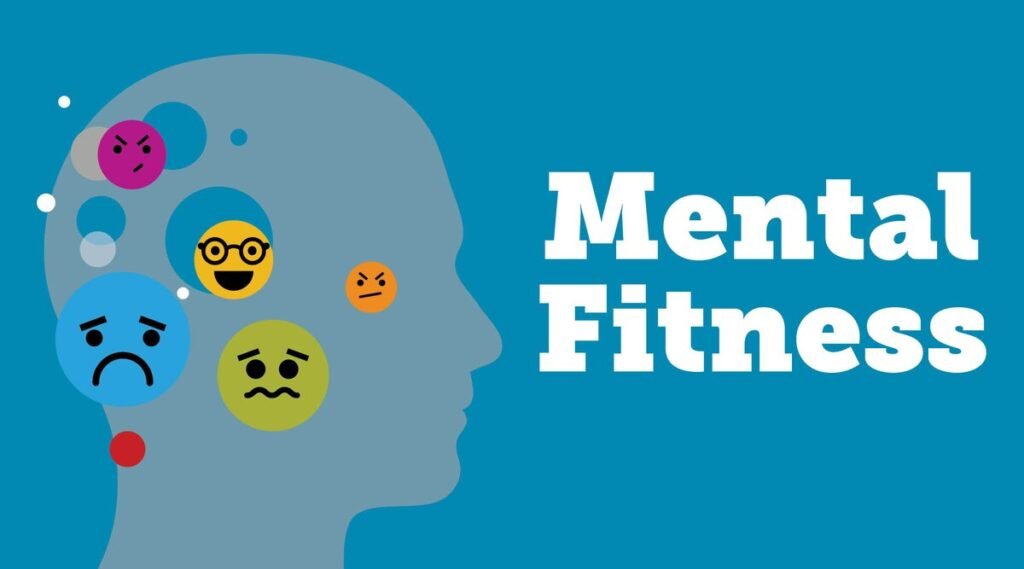
Boosting Your Mental Fitness: Simple Strategies for a Healthier Mind
Boosting Your Mental Fitness: Simple Strategies for a Healthier Mind
Introduction
Ever felt like life is moving too fast, leaving your mental health hanging in the balance? You’re not alone. In our busy lives, it’s all too easy to sideline our mental fitness while we focus on physical health. But taking care of our minds is just as crucial. In this blog, we’ll dig into practical strategies for boosting mental health and sharpening cognitive skills. With insights from knowledgeable contributors in health and wellness, we’ll find actionable tips that can lead to improved well-being, greater productivity, and stronger resilience.
—
Understanding Mental Health Through Different Lenses
When it comes to mental well-being, there’s not just one way to see things. Experts like Simina Marielena Findlay and Heather Hobbs bring a wealth of perspectives from their diverse backgrounds in health communication, science, literature, and more. This variety enriches our understanding of mental fitness and offers us many paths to nurture our minds.
So, Why Does Diversity Matter?
– Fresh Perspectives: Experts from different fields offer a mix of viewpoints, giving us a well-rounded approach to mental fitness.
– Trustworthiness: With strong educational backgrounds, we can feel confident that their advice is rooted in solid research.
By tapping into this diversity, we can discover more about effective mental health strategies and how to weave them into our daily lives.
—
Why Mental Fitness Is Crucial
You might be surprised to learn that mental fitness is just as important as physical fitness. Keeping our minds active is key to maintaining our cognitive health and emotional well-being as we get older. Engaging in various experiences can help our brains adapt and grow—a process known as neuroplasticity.
Here’s How You Can Foster Mental Fitness:
1. Try Something New: Explore new hobbies, dive into learning a musical instrument, or pick up a foreign language. These activities can really get your brain buzzing.
2. Daily Brain Workouts: Make puzzles, crosswords, or strategy games part of your routine. Services like Lumosity offer fun games that challenge your thinking.
According to the Alzheimer’s Association, shaking things up by “doing new things in new ways” can help preserve brain function while enhancing your current mental skills.
—
Practical Ideas for Improving Your Mental Health
There’s no one-size-fits-all approach to boosting mental fitness. Instead, think about the different strategies that can fit your unique routine and needs, focusing on your overall well-being and cognitive growth.
Here Are Some Easy Techniques to Try:
– Visualization: Spend a few minutes each day picturing your goals and dreams. This can create a positive mindset that aligns your thoughts with what you want to achieve.
– Positive Affirmations: Make it a habit to tell yourself something uplifting daily. Simple phrases like “I can reach my goals” can gradually change how you view yourself.
– Mindfulness and Meditation: Just a few moments of deep breathing or meditation can work wonders for reducing stress and improving focus. Studies show that regular meditation can help ease anxiety and sharpen attention.
These methods are backed by research and can make a significant difference in how we feel and function mentally.
—
Putting These Insights to Work
Knowing the theory behind mental fitness is just the beginning; it’s in the practical application where real change happens. Here’s a simple roadmap to help you start incorporating these ideas into your daily routine for better mental health.
Here’s How to Get Started:
1. Start Small: Dedicate just ten minutes each day to a mental fitness activity—whether it’s mindfulness, puzzles, or jotting down thoughts.
2. Try New Experiences: Commit to exploring a new hobby or skill each month. Think about taking a workshop, signing up for a class, or checking out online tutorials.
3. Connect With Others: Look for community groups or online forums where people share similar mental wellness interests. Engaging with others can help you stay motivated and accountable.
4. Keep Track of Your Progress: Use a journal to document your mental health journey. Reflect on what’s working and what isn’t, adjusting as necessary. Don’t forget to celebrate the small victories along the way!
5. Reach Out for Help: If you’re unsure where to begin, consider talking to a mental health professional. They can offer personalized strategies that align with your needs.
—
Conclusion
Mental fitness is more than just a buzzword; it’s essential for leading a balanced life. By recognizing the importance of trying new activities, applying straightforward strategies, and building resilience, we can nurture our mental health.
As you take in these insights, think about how they resonate with your life. Got thoughts or tips of your own? We’d love to hear from you in the comments, or delve into more resources on our site to deepen your understanding of mental health.
Let’s keep the conversation alive on how we can uplift our mental health together. What’s one small change you can make tomorrow to support your mental fitness? Share your ideas below!
Written by Alexander Babinets
Founder of Express Fitness, certified coach, and author helping people get in shape without excuses.
📍 expressfitness.ca | 📩 info@expressfitness.ca
👤 More about me → alexanderbabinets.com
TAKE IT FURTHER
This post only scratches the surface. In my book “12 Steps to Freedom: Conquering Depression and Taking Back Your Life,” I walk through the emotional realities of depression and share 12 practical, life-changing strategies to reclaim your strength.
Hashtags: #mental #health #fitness #just #strategies #into #help #well #these #like #being #more #about #daily #here
